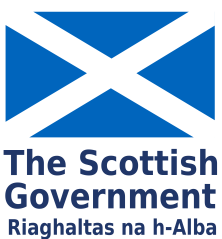The Opportunity
The Scottish Government wanted to understand how a digital service could address challenges with the current experience of childcare in Scotland. The task for NEC Digital Studio was to carry out user-centred research and design to assess whether this could be a good solution.
The Results
Our project produced a well-informed understanding of the potential benefits and pitfalls of a digital childcare service in Scotland. We made recommendations related to the possible future service and laid the foundations for future phases of work.
Project Context
In the 2023-2024 Programme for Government the Scottish Government announced that they will: “Test a new digital service to help parents and carers find, access and pay for childcare that best suits their needs, laying the foundations to transform the childcare system in the longer term in a way that empowers parents and supports greater choice.”
The Scottish Government are seeking to understand the needs for a service that could solve the whole problem for users – finding, accessing and paying for childcare which meets the needs of parents, carers and childcare providers.
This project was people-centred and place-based. It was important to the Scottish Government that the participants we engaged in the research were geographically representative. A core aim of the School Age Childcare Programme is tacking child poverty. Our brief stated that families at risk of child poverty should be involved in the project. The team were particularly interested in learning about outcomes that would help families access childcare that supports parents and carers to:
- take up, sustain or increase their hours of work
- take up opportunities and seek higher-paid work
The Scottish Government has identified 6 priority family types identified as being at highest risk of child poverty. These include lone and young parent families, black and minority ethnic families, and families with a disabled parent or child.
These groups were used to frame a recruitment approach for the project research.
Holistic understanding, informed recommendations
This exploration project was commissioned to understand the challenges and experiences of parents, carers and childcare providers within the context of school- age childcare across Scotland. We investigated how these potential users would respond to the concept of a digital childcare service developed by the Scottish Government.
The end goal of the research and early design was to understand how a digital service may or may not alleviate the current challenges experienced by parents, carers and childcare providers. This project needed to inform future phases of work by making recommendations in relation to a digital childcare service and bringing next steps into focus.
An agile approach with a blended team
We worked with the client using a ‘one-team’ agile approach. Our multidisciplinary team brought 8 roles across research, design, technology and delivery. We had daily stand-ups, retros and weekly planning sessions. This kept the client involved as much as possible and helped us learn from previous projects.
We did research with parents, carers and childcare providers to understand the current landscape of school-aged childcare and their response to the idea of a digital solution to ease current challenges.
We engaged over 200 participants through surveys, workshops (online and in person) and interviews. We did desk research and talked to Scottish Government and local government stakeholders to put forward high-level technical proposals and estimated costs.
On the back of our research insights we:
- wrote user needs
- made recommendations about the possible future service and its outcomes
- created a journey map for a future digital service prototype
- estimated costs for designing and developing the service
- wrote a problem statement for a subsequent Discovery project.
Firm foundations for the next phase
Our project created a robust view of childcare in Scotland, in relation to opportunities for a digital childcare service. The findings and recommendations will support Scottish Government’s future policy development and inform the approach to the design of a future digital childcare service.
Find out more
More and more organisations are turning to digital or digitally-enabled services, but real change starts with understanding people’s needs. If you’re exploring a similar challenge or want to know how we can help, get in touch with us through our contact us page.
Further reading
The go-to guide on all things NEC Digital Studio, our playbook gives you an in-depth insight into how we do things and how we can work together. Read the playbook



